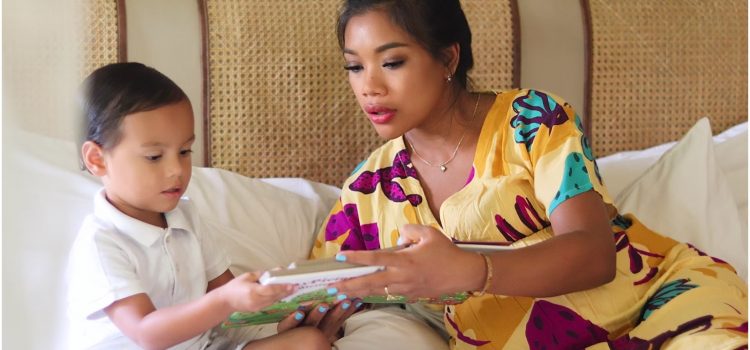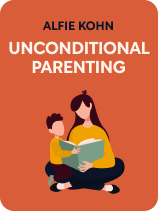

This article is an excerpt from the Shortform book guide to "Unconditional Parenting" by Alfie Kohn. Shortform has the world's best summaries and analyses of books you should be reading.
Like this article? Sign up for a free trial here .
Which good parenting skills do the greatest parents use? Of all the good parenting skills, which are most important to know?
In Alfie Kohn’s book, Unconditional Parenting, he advocates for “gentle” or unconditional parenting which doesn’t rely on a system of rewards and punishments. Rather, Kohn advises that good parenting skills consist of unconditional support, acceptance, and trying to understand your children’s perspectives.
Keep reading to learn the three good parenting skills every parent should know, according to Kohn.
Unconditional Parenting: 3 Good Parenting Skills to Learn
Most parents want to raise their kids to be self-confident, independent, and compassionate. But, what good parenting skills should you know to raise the happiest children? In Unconditional Parenting, author and lecturer Alfie Kohn argues that we should throw away the standard parenting rulebook and replace it with a new approach built on unconditional support, acceptance, and understanding.
In this article, we’ll list the three good parenting skills that you can refer to if you’d like to try out unconditional parenting. Kohn deliberately doesn’t offer scripts or specific advice, saying that paying attention, reflecting, and following the principles is enough.
Skill #1: Reflect Regularly
The first good parenting skill Kohn suggests is learning how to self-reflect. This means making sure that you don’t parent according to your mood or unknowingly reproduce patterns from your own childhood. While Kohn says good parenting requires learning the skill of reflection, he cautions that this isn’t the same as rationalizing the decisions we’ve made (which is often tempting).
The goal isn’t to be overly self-critical, as that doesn’t help either; it’s to introduce a healthy level of humility and an openness to change. Kohn recommends that you stop and ask yourself: “If someone said or did that to me, would I feel loved unconditionally?”
| Skills for Good Parenting: The Mindful Discipline Technique In No-Drama Discipline, Daniel Siegel and Tina Payne Bryson recommend the following three-step sequence to make sure you’re responding to your child’s behavior mindfully: 1. Why did my child do that? Were they trying to express an emotion or accomplish a goal? 2. What lesson do I want them to learn right now? What’s the most important thing they need to know at this moment? 3. How should I deliver that lesson? In delivering the lesson, be sure to take the age of the child into consideration. For smaller children, deliver your lesson in the simplest terms possible. For older children, it’s valuable to explore situational nuances. The questions remain the same no matter the situation or the child’s age, but the answers are dynamic and should change every time you use the technique. |
Skill #2: Avoid Intervening Where Possible
According to Kohn, most parents are too quick to meddle in their child’s activities, which he says is not a good parenting skill. To help your child build autonomy, let them sort things out for themselves as much as possible—even if it means sitting on your hands or biting your tongue. (Of course, this doesn’t apply if the child is in immediate danger.) Whenever you’re about to ask a child to do something, pause and consider whether it’s really important. If it’s not, keep quiet.Kohn suggests that instead of constantly telling children what to do, you should foster autonomy by offering choices and asking questions. Wherever possible, let children decide, even if this occasionally makes you feel uncomfortable.
Skill #3: See Things From the Child’s Perspective
According to Kohn, a good basis for all unconditional parenting skills is empathy. Young children get carted from place to place, they’re physically smaller and weaker than adults, and in general they have very little control over their lives. They’re also dealing with impulses and emotions they don’t understand, rapidly changing bodies and brains, and new and confusing social situations. Your child’s needs and emotions might not make much sense to you (for example, you might not be too worried about monsters under the bed), but you should take them seriously because your child takes them seriously. In particular, don’t dismiss behavior as “attention-seeking”—wanting attention is a perfectly legitimate human need.
Kohn adds that when you’re trying to figure out your child’s motivations for doing something you don’t like, he recommends going with the most generous interpretation possible of what you’ve observed, for two reasons: First, you don’t want to jump to conclusions that might not be correct, and second, kids internalize the motivations we attribute to them (for example, if you say, “Don’t be selfish, share your toys,” the child might interpret this to mean that she’s a selfish person). Showing empathy to your kids also models the empathetic behavior you want them to grow into later.
| Skills for Good Parenting: The “Give in Fantasy What You Can’t Give in Reality” Technique Adele Faber and Elaine Mazlish, authors of How to Talk So Kids Will Listen, suggest that parents forestall tantrums by giving in fantasy what they can’t give in reality. For example, if you’re at the supermarket with a child and she decides she wants a big bag of candy, instead of saying “no,” try playfully describing a fantasy world in which she gets her wish. You could say: “I wish we could take home the candy! I wish we could take home a thousand bags of candy, make a big candy mountain, and just sit on top of the mountain all day eating it.” The way this technique lets you acknowledge children’s desires and empathize in a playful way without giving in to them makes it surprisingly effective. |

———End of Preview———
Like what you just read? Read the rest of the world's best book summary and analysis of Alfie Kohn's "Unconditional Parenting" at Shortform .
Here's what you'll find in our full Unconditional Parenting summary :
- How to raise kids to be self-confident, independent, and compassionate
- Why you should throw away the standard parenting rulebook
- Why rewards and punishments cause more harm than good






